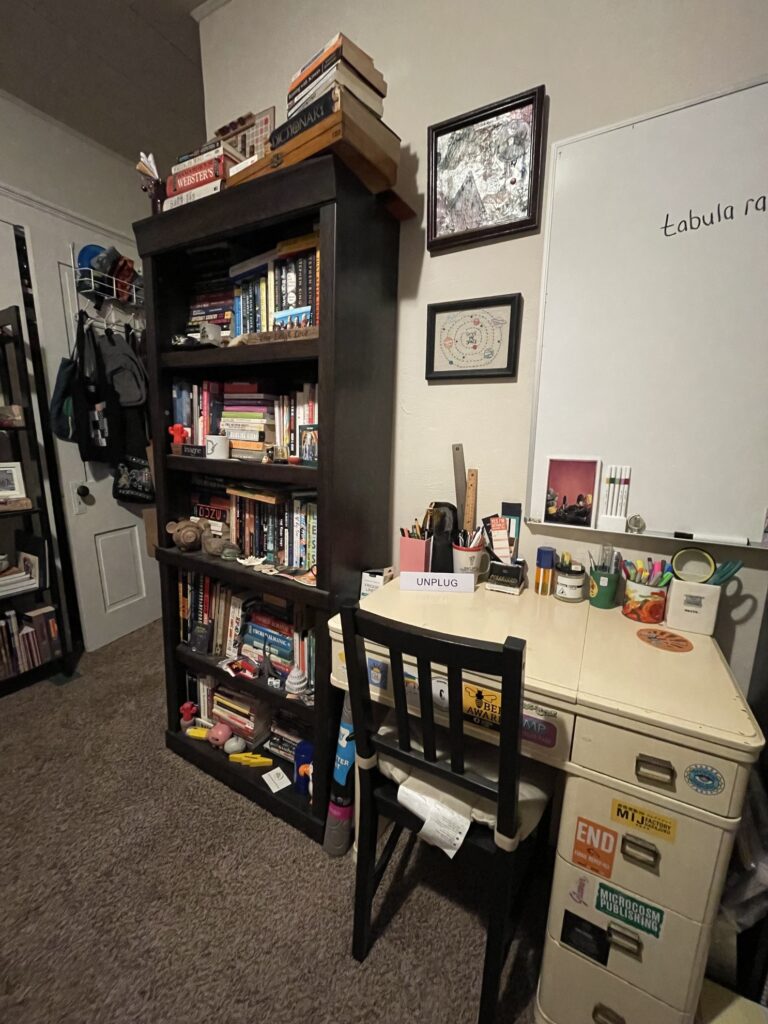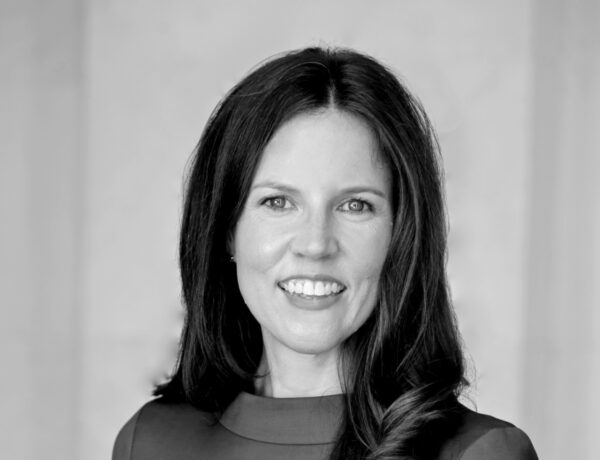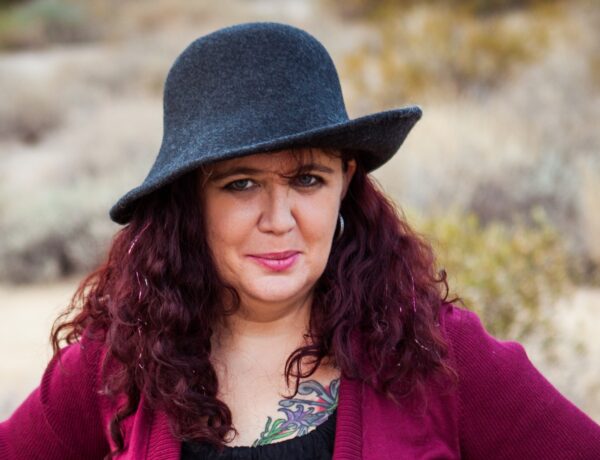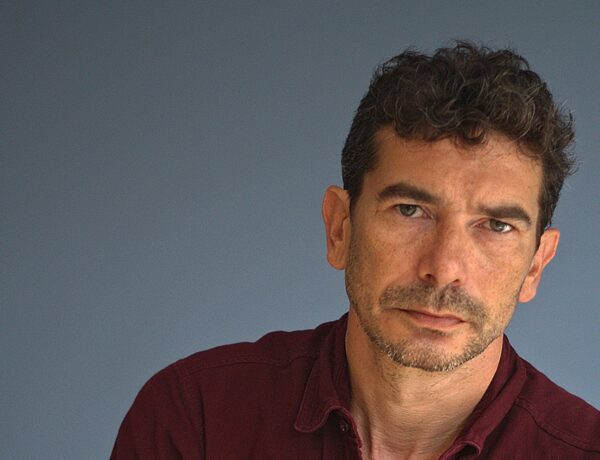Donna Talarico is an independent writer and content marketing consultant with over two decades of experience in marketing, communications, writing, and media.
She is also the founder of Hippocampus Magazine, an online publication that features creative nonfiction writing, and its books division, which publishes works by emerging writers.
Donna is a sought-after speaker at higher education and publishing conferences, and her writing has appeared in numerous publications, including Currents, Guardian Higher Education Network, The Writer, and mental_floss, among others.
Her creative nonfiction has been published in literary journals such as The Los Angeles Review, The Los Angeles Times, The Writing Disorder, and Wanderlust Journal. In 2021, Donna co-edited Getting to the Truth: The Craft and Practice of Creative Nonfiction, which was published by Books by Hippocampus. She also contributed a chapter to mStoner’s Social Works.
Each week, we publish a new daily writing routine from a famous author. Subscribe to our newsletter so you don’t miss out!
Hi Donna! We’re delighted to have you as a guest on Famous Writing Routines. How did your background in higher education, specifically as the director of integrated communications at Elizabethtown College, influence your work as a writer and content marketing consultant?
My work in content marketing and as a freelance journalist pre-dated my time at Elizabethtown College, so I was sort of “mid-career” when I landed there in 2010. It was my time at an ecommerce services company (then known as Solid Cactus and, later, acquired and absorbed by Web.com) when I was really introduced to content marketing and all that goes with it.
At the time, in the early-to-mid Aughts, social media was still in its infancy (as far as it being a true brand/marketing strategy), so I was able to do a lot of revolutionary things for the time. When I left the ecommerce agency world for higher education, I took all of those experiences with me and put them to good use – and had a ton of fun doing it.
Higher ed moves a bit slower than other industries (mostly because the Ivy Tower has a hard time coming to terms with the idea that students are consumers), so I was able to, again, do some groundbreaking stuff with higher ed websites for the time (the field is always evolving).
More excitingly, I was able to build a social presence for the college from the ground up – which led to me presenting about it at some industry conferences and writing about it for industry publications. That opened me up to a greater community of higher ed web and marketing/communications professionals across the country.
I left Etown in 2015 and have since become an independent contractor working with digital agencies who focus on higher education. So I’m still in the higher ed field, just not for a single campus!
I kind of strayed from your question, I know. Ha. Sorry about that. But I thought that career trajectory would illustrate how we’re always learning and growing – and also show how sometimes our personal lives, professional lives, and passion projects get intertwined and inform each other.
In short, to answer your question (finally), my time in higher education has reinforced my belief in not just stories, but also the power of the written word. I’ve learned that everything really comes down to creating something helpful, educational, or entertaining for an end-user.
Oftentimes that means crafting a compelling narrative, whether it’s a personal essay for myself, an alumni magazine article for a client, or an entire book that I hope to someday publish. Other times, it might be implementing clear, concise content, such as an email subject line or microcopy on a website to drive a user to an action or a sentence.
Along with that, after nearly 20 years working with agencies, I’ve also learned the importance of teamwork and how to use technology to work smarter. This teamwork definitely applies to my writing life as well; any writer who wishes to publish a book or have work published in print and online magazines will have to work with others: acquiring editors, copy editors, designers, publicists, etc. And since their specific tasks are dependent on yours, meeting deadlines becomes more important.
Can you tell us about your love for road trips, national parks, board games, greasy-spoon diner breakfasts, and museums and how they influence your writing?
Oh gosh. I love this question. I’d say my curiosity in general is what keeps me going. My early days in journalism (mostly for an alt-weekly in Wilkes-Barre, PA, when I was in my late 20s/early 30s) were driven by the things I found interesting.
I pitched stories based on random things I discovered or topics I wanted to learn more about. I was SO fortunate to have editors that gave my ideas a chance. The alt-weekly paid $25 a story at the time, so it’s safe to say I was not writing for income then; this was to gain experience while having fun.
Lately, my love of board games has led to new bylines in Games World of Puzzles magazine, and my affection for diners and the open road is fueling a pet Instagram project called Donna Does Diners, even a little merch line to go with it.
I don’t ALWAYS want to have a story in mind when I’m doing something for leisure, but it’s definitely fodder.
How do you balance the demands of teaching, writing, and running a magazine and its books division and annual creative nonfiction writing conference?
My short answer to “how do you balance” is “I don’t, or at least not well.”
For the longer answer. Well, in full transparency, about two months have passed since I originally received the questions for this email interview. In the meantime, Hippocampus Magazine put its annual conference, HippoCamp, on hiatus. And I’ve also taken some time off from teaching in the graduate publishing program at Wilkes University.
Your question asked about BALANCE, and this is exactly why I personally needed to cut back on some things that are important to me, but that I was (quite literally) running out of time for. In truth, my personal writing has suffered. Immensely. I completed my MFA in 2009, but I have yet to complete the memoir I started for my thesis project.
The “balancing managing a magazine” portion of the question is easier to answer. Hippocampus – which I should add is an independent publication run completely on volunteer energy – has experienced some growing pains after expanding into a conference and small press.
But the heart of what we do is and always will be the magazine, and that’s as strong as ever. I’ve learned that the best way to balance running a magazine with other aspects of my life is to ask for help. I’ve been fortunate enough to find and grow an amazing team of volunteers who are truly the glue that holds this publication together.
Part of the balance was also to make a few changes to our overall operations in order to make things more manageable on the back-end. For example, when we launched, we were a monthly magazine and were open to submissions year-round. We’ve since switched to bi-monthly issues and are open to submissions for a small window twice per year.
Balance is everything. I often beat myself up about not being as dedicated to writing or as prolific in publishing my own work as others. One thing is for certain: I still need to work full-time to earn a living. But outside that 50 hours a week? Then what? How does adjuncting, freelance work, volunteering with Hippocampus, and other one-off projects fit? What about friendships and family time? I realized that maybe it’s not necessarily a lack of time, but it’s how I spend my time and energy.
This year, for several reasons but mostly due to some serious health concerns, I recommitted to myself. This meant reshifting priorities and reallocating my time.
One more thing about balance. Since 2015 I’ve rented a private office at a coworking building in downtown Lancaster; it’s an old tobacco warehouse and it’s full of character. I love it. The idea is that I will never do work at home and never do personal writing at work. Sometimes there’s gonna be a need to do so, but the idea is to create boundaries.
Do you struggle to stay focused while writing? You’re not alone! That’s why Famous Writing Routines recommends Freedom – the ultimate app and website blocker for Mac, Windows, Android, iOS, and Chrome. With over 2.5 million users, Freedom helps writers stay on task and avoid distractions. Get started for free today and reclaim your productivity!
What does a typical writing day look like for you?
First, because I work full-time, there’s not really a “writing day.” Gosh, I wish there was! But as far as a daily writing routine, I also don’t have one. The writing world in general seems divided on the idea of routine vs. “when you can.” I’m in the latter camp.
I’m getting much better at the idea of deep work, so I try to build in blocks of time for just writing or thinking. This applies mostly to my full-time job, which requires creative conceptualization and writing, so during these blocks of time, in my work apps (like Slack), I have an away message to indicate I’m “heads down.” But this “monotasking” and “deep work” is something I’m trying to bring to my writing life, but it all boils down to my schedule being incredibly inconsistent.
To help answer your question, my IDEAL daily schedule, Monday through Friday:
- 8 a.m. – wake up [I’d like to make this earlier, but this is more realistic]
- 8 to 9:30 a.m. – coffee, exercise, shower, free-writing, etc.
- Leave home by 9:45 to walk to the office
- 10 a.m. to 7 p.m.* – basically, an 8-hour work day, with lunch and reading break built in
- 7 to 9 p.m. – dinner with Kevin, then unwind, maybe TV/movie or a game
- Between 9 and 11 p.m – reading, freewriting, chores, or continuation of fun things, etc.
- 11 p.m. – bedtime routine and, eventually, Zzzzz
Weekends look like this:
- Saturday, work for 5-6 hours (or longer if I need to make up time)
- Tend to my Hippocampus Magazine duties, typically 4-5 hours on either Saturday or Sunday
- Give current WIP attention at some point
Of course I tweak this based on pressing needs that week or on any given day. Hippocampus stuff, things like email and social posts, is often sprinkled throughout the week, but I try to reserve that bigger block of time for issue production and larger tasks.
*I’m presently working 50-60 hours per week to help pay down debt and rebuild savings; by 2024, I hope to go back to a 30-40-hours work week, which will open up more time in the day for blocks of writing. (Crossing fingers!)
Do you have a set daily or weekly word count goal or do you focus on other measures of progress?
Until recently, no. I’m part of an accountability group (through CaveDay) now where we can set some task-based goals, and my weekly list now has:
- Freewrite for at least 20 minutes a day on five separate days
- Read for at least 30 minutes a day on five separate days
- Work on my WIP for at least an hour a day on four separate days
I’d like to have word-count goals, submission goals, or publishing goals. But until I can get myself in a better place mentally and physically, I’m focusing on just creating better daily habits. If I can do that, I can progress to more ambitious goals!
How do you stay current with industry trends and best practices in the field of writing and publishing?
Twitter has been my go-to professional development tool since I joined it in 2007. (Of course, things are shaking up a bit on where people spend their time social-media-wise.) Twitter isn’t an end-all, be-all, but it’s always on and it’s searchable.
Plus, because I have it nicely organized by lists, I can quickly see content just from people, publications, and organizations I trust. I can see what those people/groups are reading and sharing, whether links to the publishing news, submission opps, book announcements, or poignant essays.
I subscribe to a bunch of writing and publishing newsletters, from both individual writers and publications/organizations. I also try to keep up with the latest craft books and I love to attend conferences and webinars – and have a special place in my heart from in-person events.
And, finally, just by being friends IRL with other writers, I absorb so much from everyday conversations.
I’d love to know what you’re reading at the moment. What have been some of your favorite books recently?
Since the pandemic started until late 2022, I struggled a lot and was in what I’d call survival mode – in work, with passion projects, and with personal relationships. In fact, as I reflect on the questions I’ve answered so far, I realize that how I’m responding to this interview now – in COVID times – is likely very different from what my responses would have been prior to 2020.
I think this pandemic has fundamentally changed all of us in nearly every aspect of our lives, for better or worse. Buying books remained a comfort through all this, but reading them all, it just didn’t happen. So while my TBR pile has grown and grown and grown, I’m nearly embarrassed to admit that I haven’t read much for pleasure in what feels like forever.
My most recently completed read was Neil Gaiman’s The Sandman (Books 1-4). I read the four-part graphic novel series – the repackaging of the original comics series – in anticipation of the TV adaptation. It was magical. And I don’t know why I didn’t read it sooner.
Right now, I’m reading two books: Cold: Three Winters at the South Pole by Wayne White, which I’m reading in order to review in Hippocampus Magazine, and Lincoln Highway by Amor Towles. I’m also a little behind on my comic shop stack, but one amazing title that’s on my pull list is Nice House on the Lake. I can see this one being adapted into a streaming series for sure!
As far as other favorite reads from recent history, I have to say on the creative nonfiction side: The Part That Burns, an incredibly written and structured memoir by Jeannine Ouellette. And on my professional development side: Design is Storytelling by Ellen Lupton.
Can you describe what your current writing workspace looks like?
As I noted in an earlier answer, I have a home office which I try to dedicate to only my own creative projects and not my “day job” stuff. And then I rent an office downtown for my professional work. So, for the sake of this question I’ll focus on my personal writing, which is at home. (Although my work office is full of fan art and Funkos and I’d LOVE to show that off, too! But, balance! I must remember to balance and set boundaries!)
I borrowed an idea from the amazingly thoughtful and creative Austin Kleon and have two desks: a desk for my computer and then an analog desk. My computer desk features two monitors; since I do a lot of research as I write, dual monitors help with productivity. (Once I used two monitors back at Solid Cactus, I’ve never been able to go back.) I use the analog desk for line editing, as well as for journaling and random creating (like collages or black-out poetry). This is also where I stash my fun markers, pens, and colored pencils.
I’m surrounded by bookshelves, all which have random trinkets and souvenirs and swag shoved in various spots. Walls are a work-in-progress again, but I’m hoping to hang up more local art or other pieces I’ve acquired. I collect old advertising, Americana memorabilia, and old office items so some of that is displayed on shelves and walls.
I have a little reading nook in the back and, now that the floor is finally clear after two years of this being more like a storage room, I have some open space to do yoga and simple workouts. I’m focusing more on connecting with myself, so I recently made space for a little secular altar where I can meditate and such. (This is new to me, so I’m still exploring it all!)
My personal writing space has been ignored for too long, and I’ve finally cleared a bunch of junk out of it and am making it a place I want to be again. Maybe, just maybe, this reorganization is what I need to get back into the writing habit and, perhaps, finally develop that writing routine that I’ve always wanted.

Affiliate disclaimer: Some links on this website are affiliate links. We may earn a small commission if you make a purchase through these links, but only promote products we truly believe in. We disclose affiliate links and give honest reviews.



No Comments